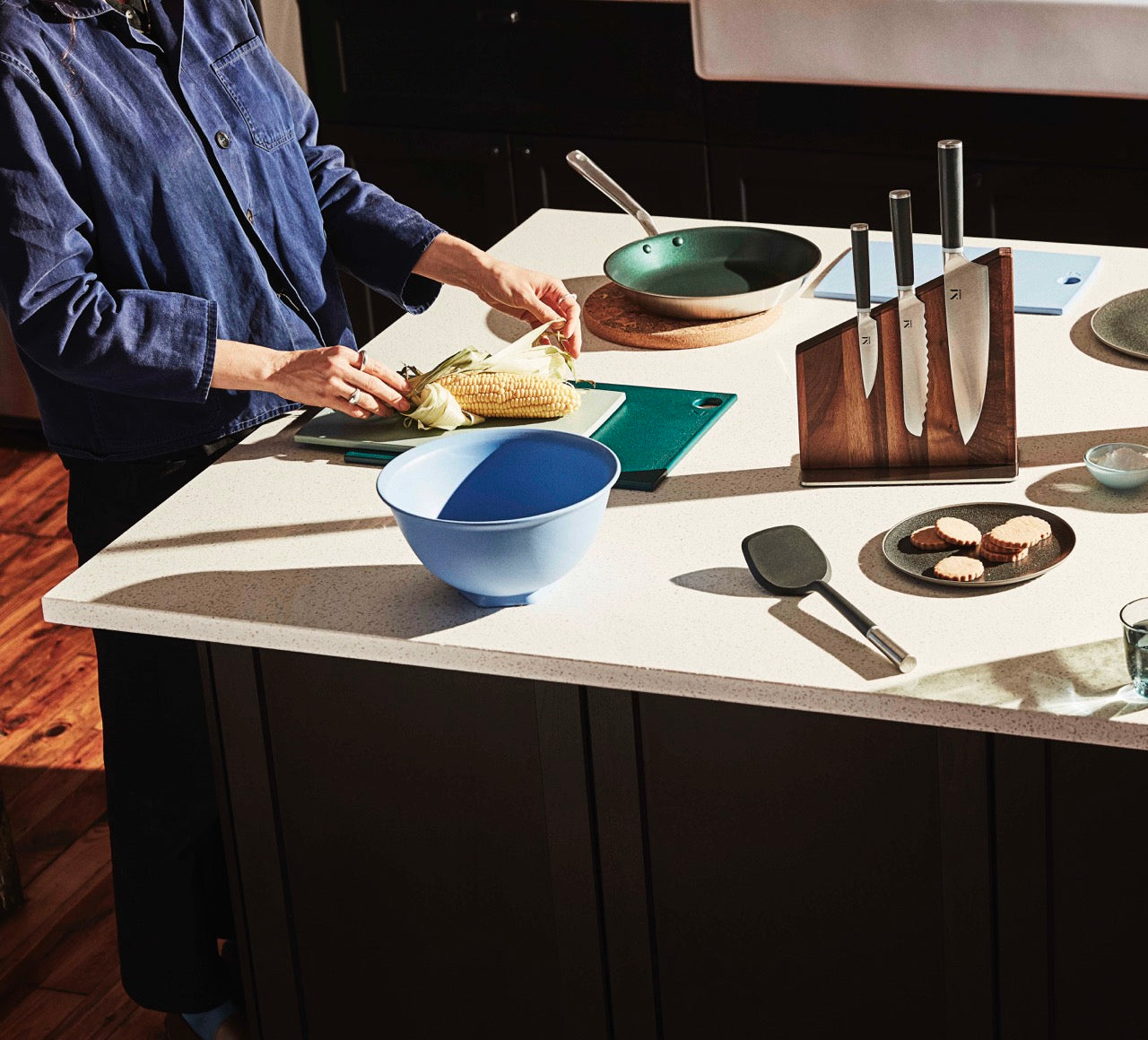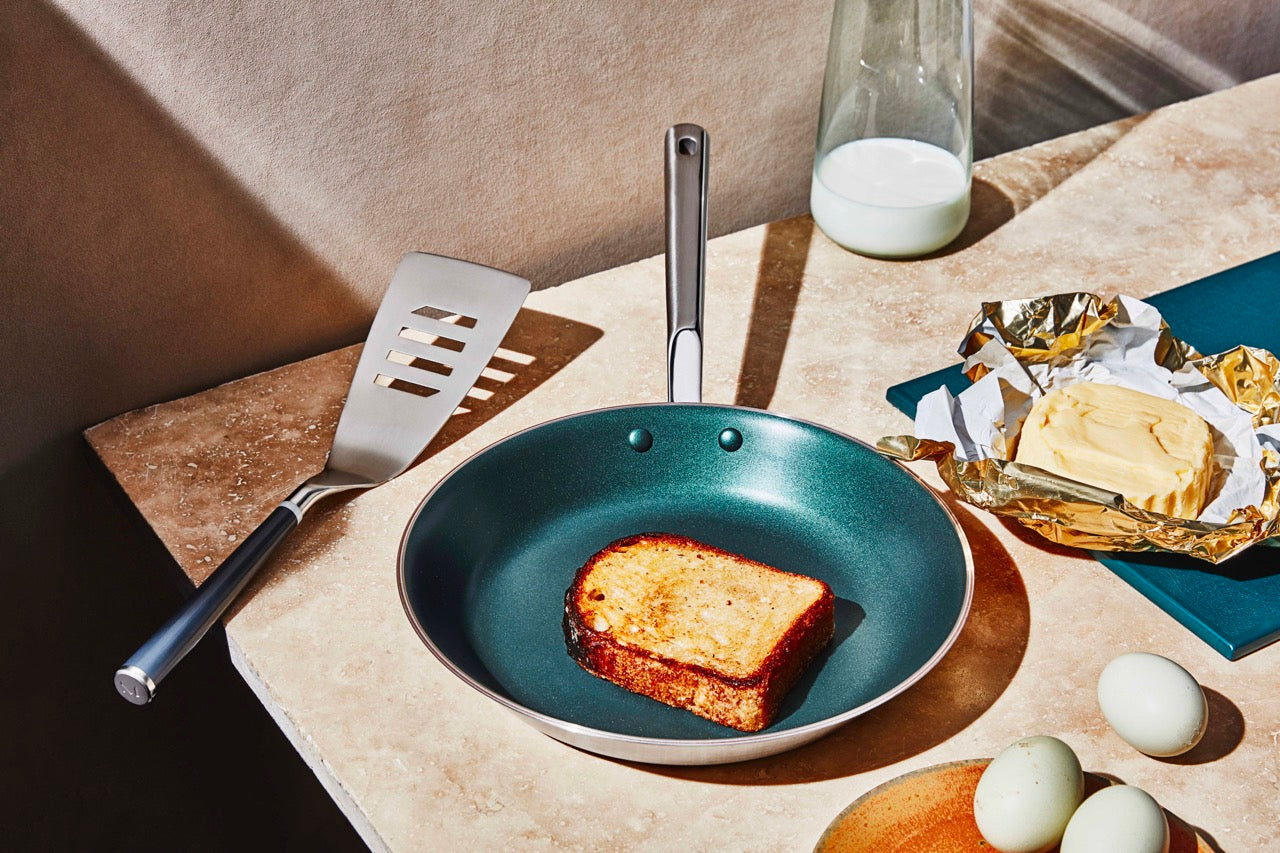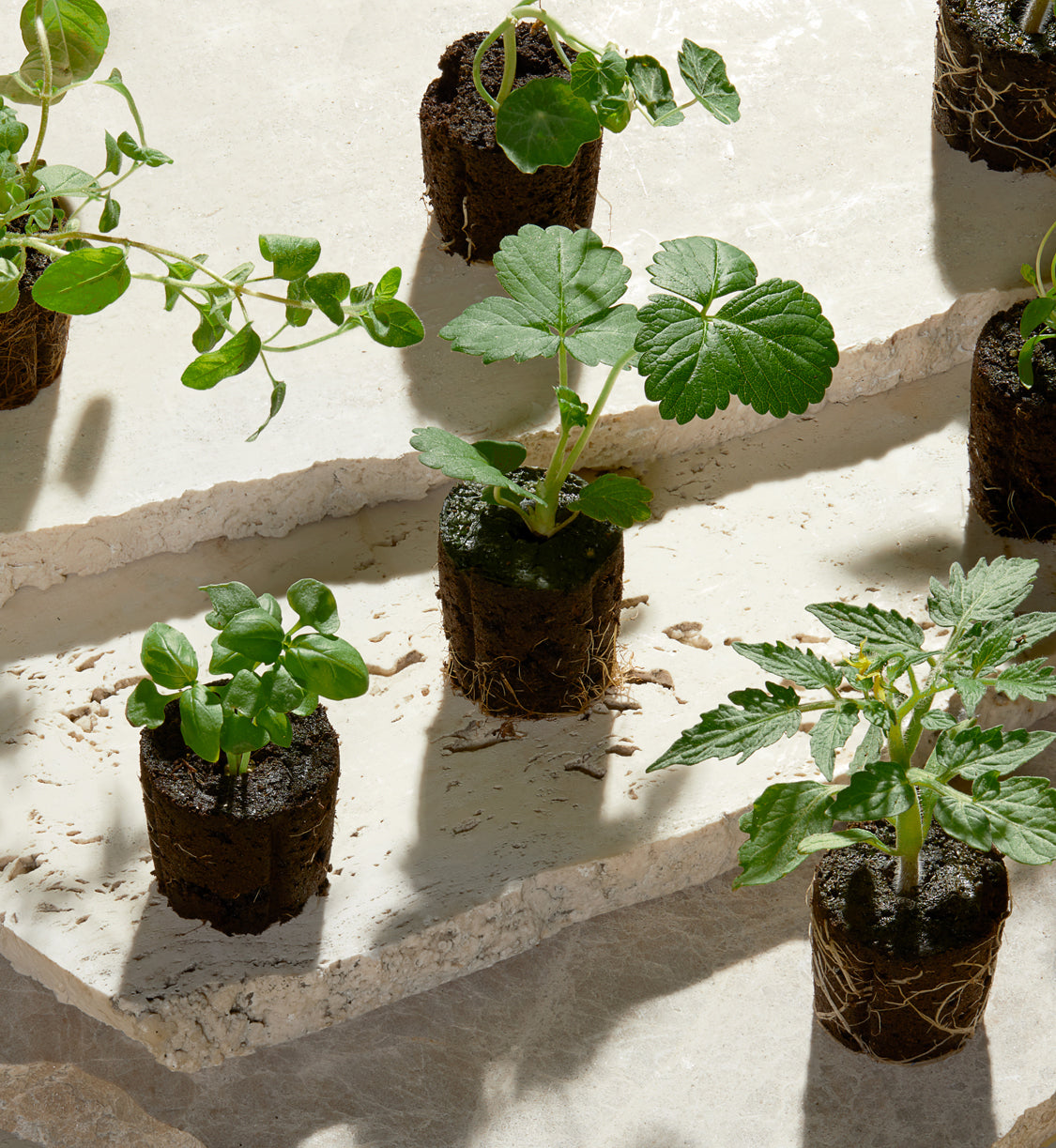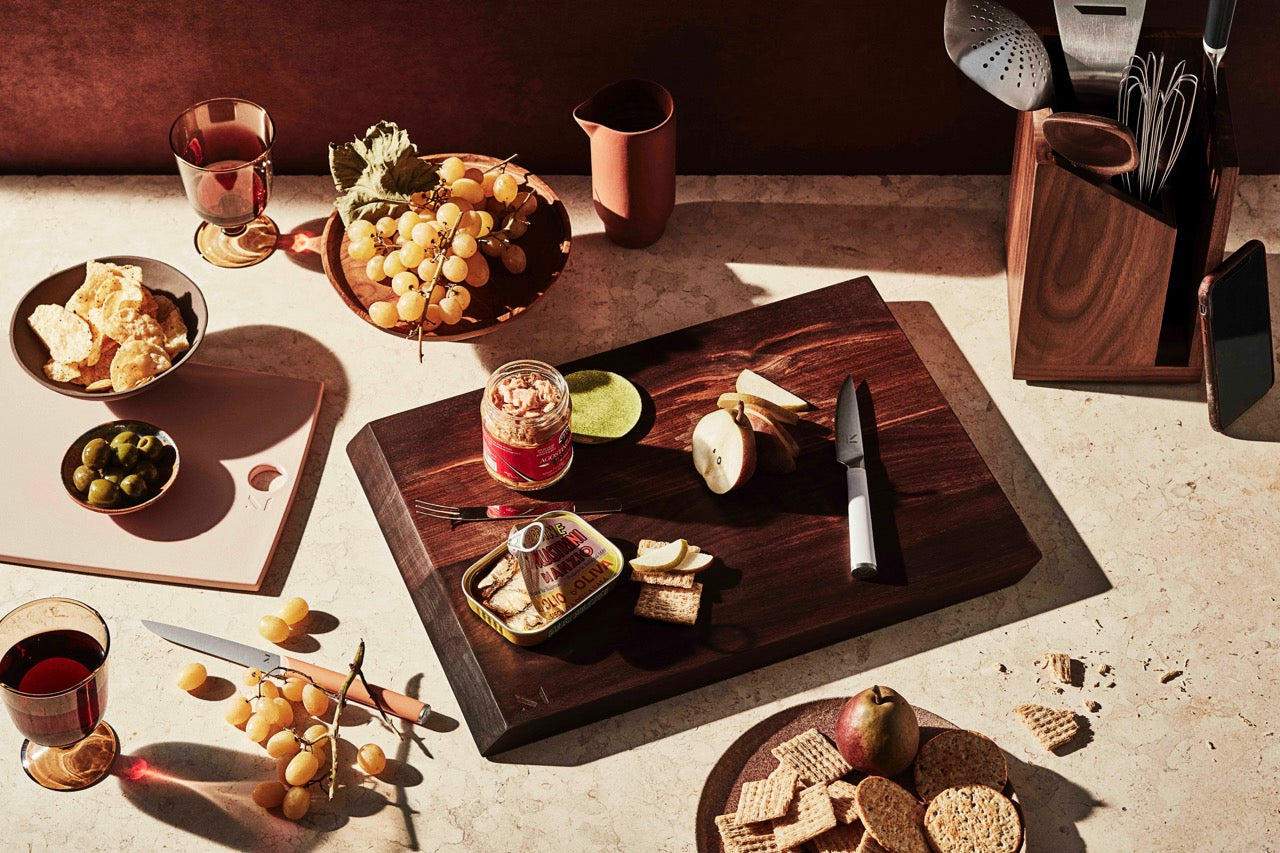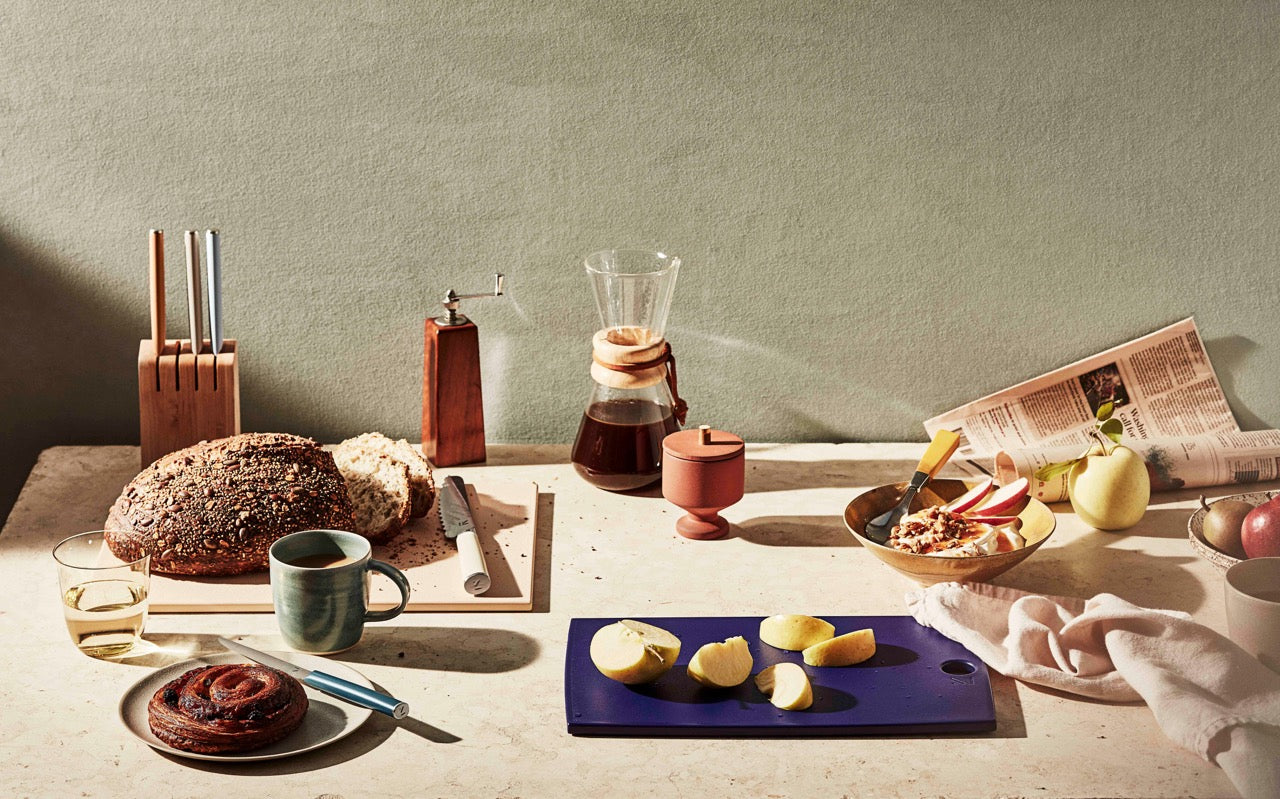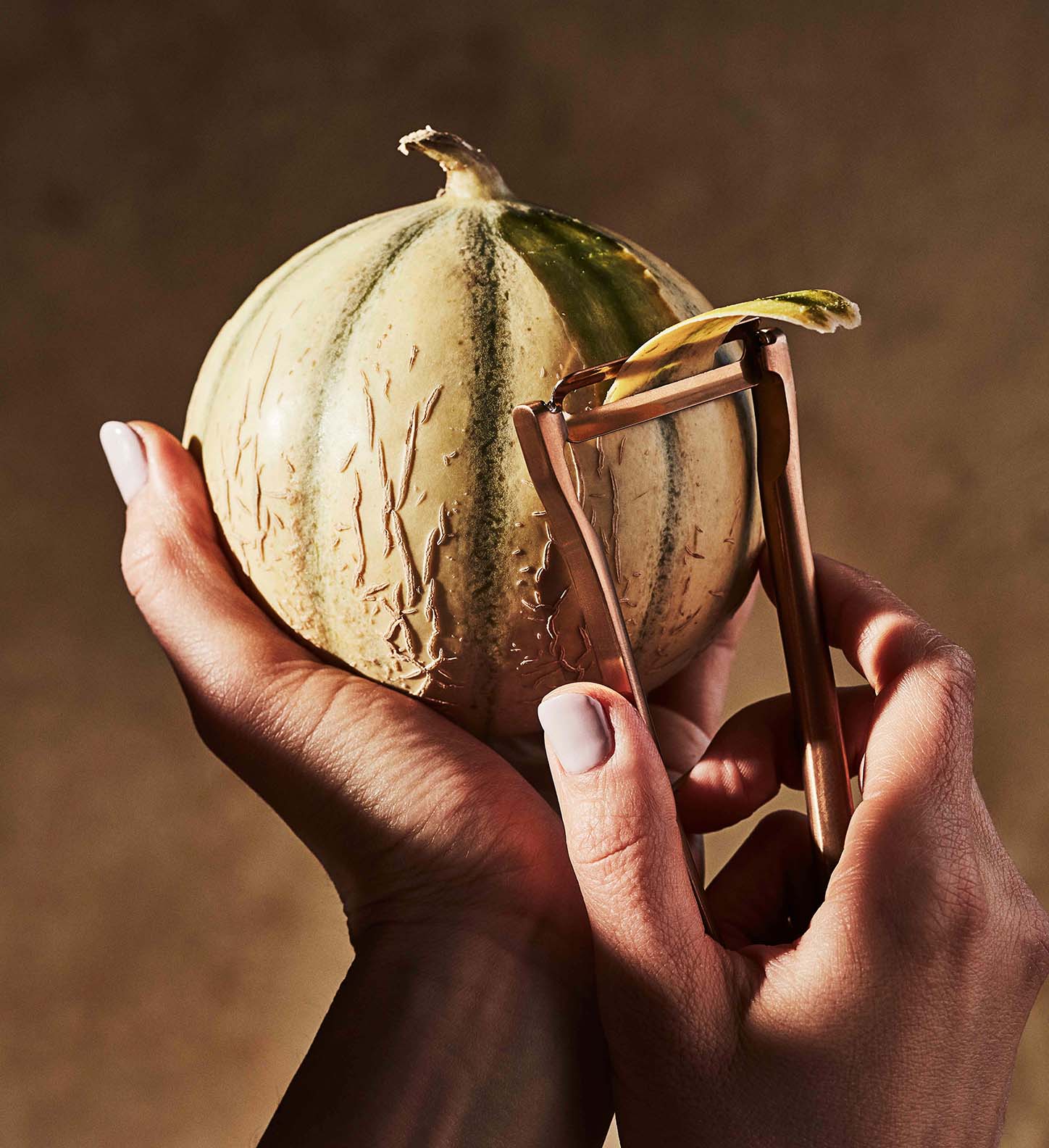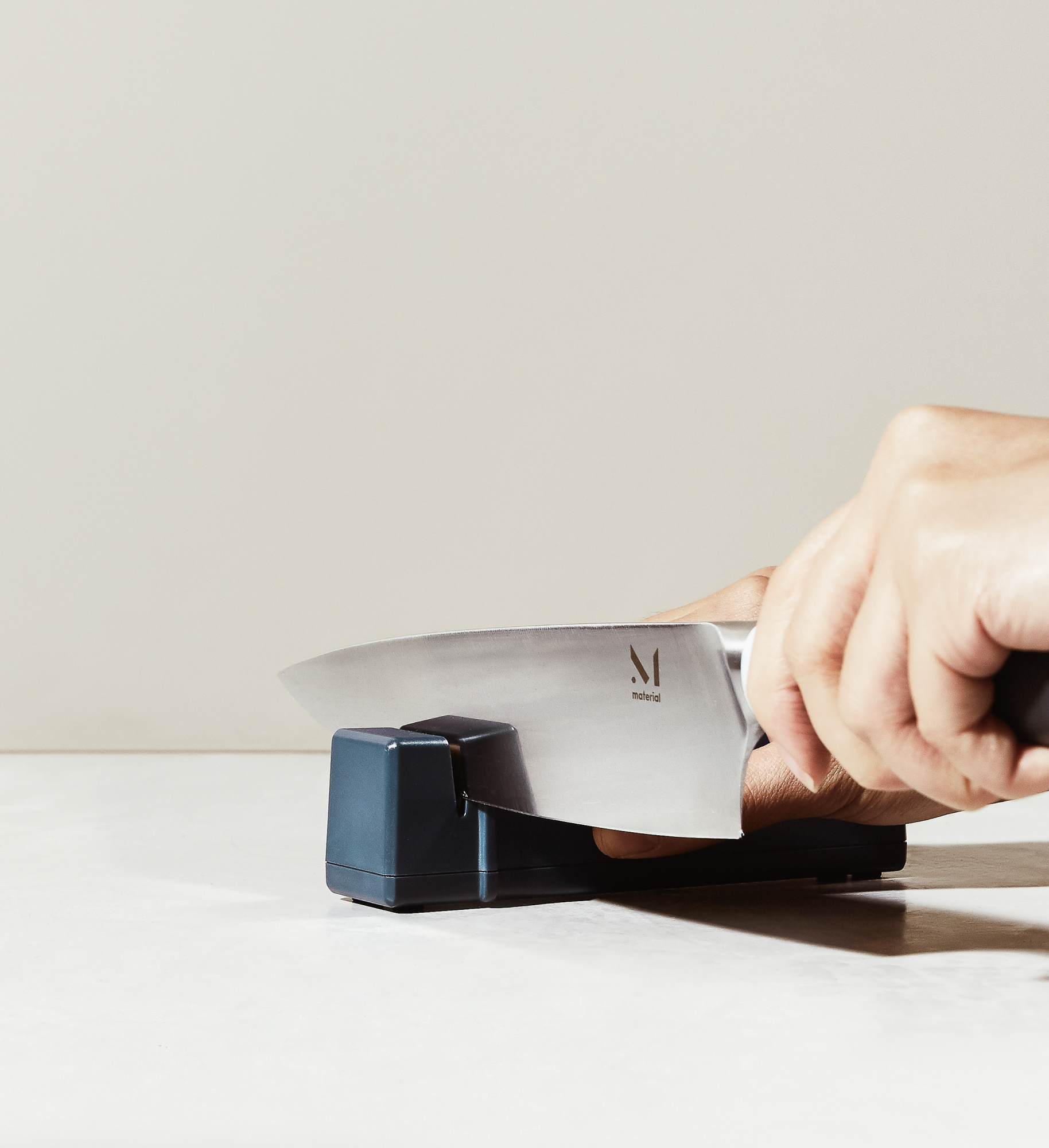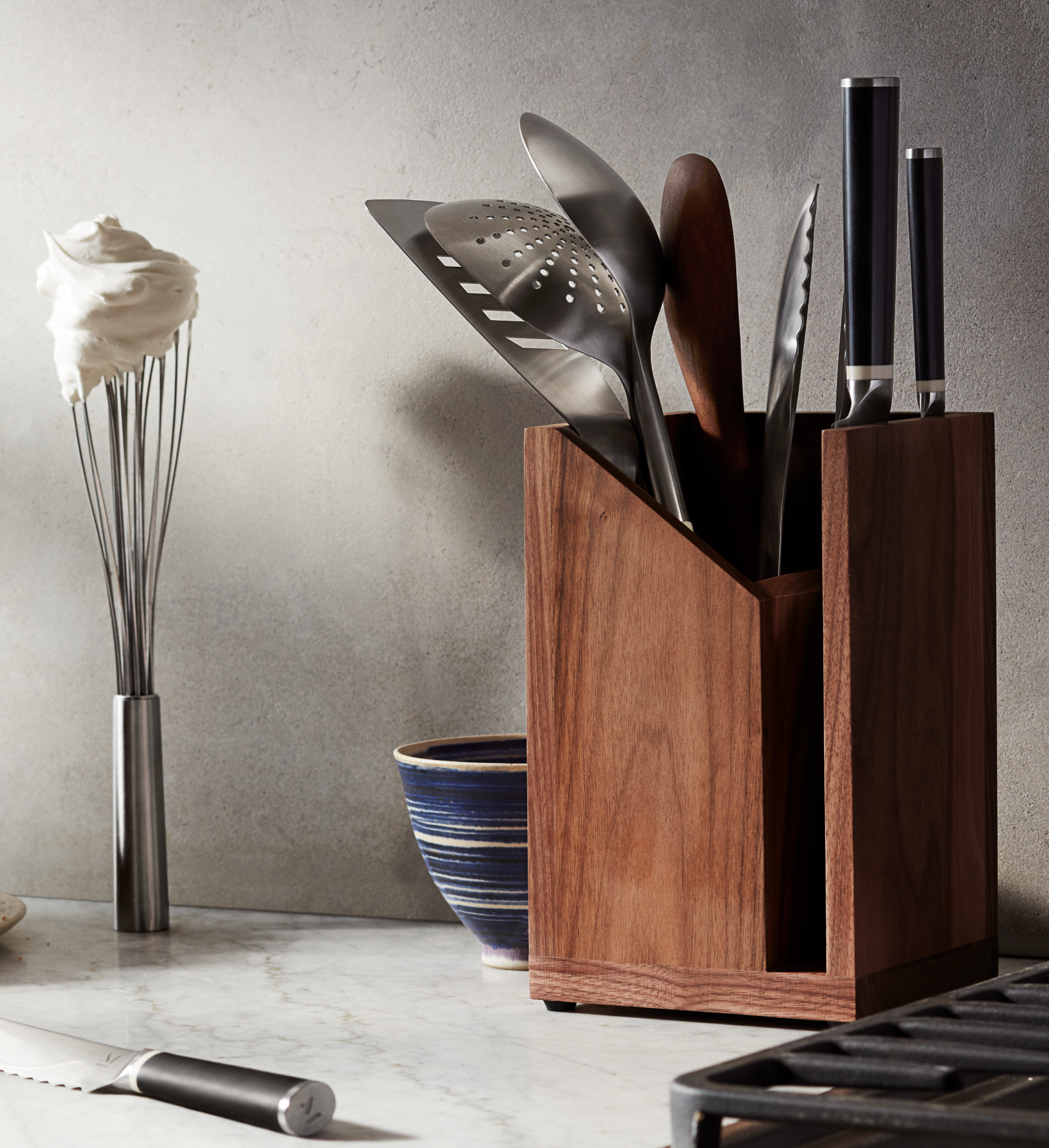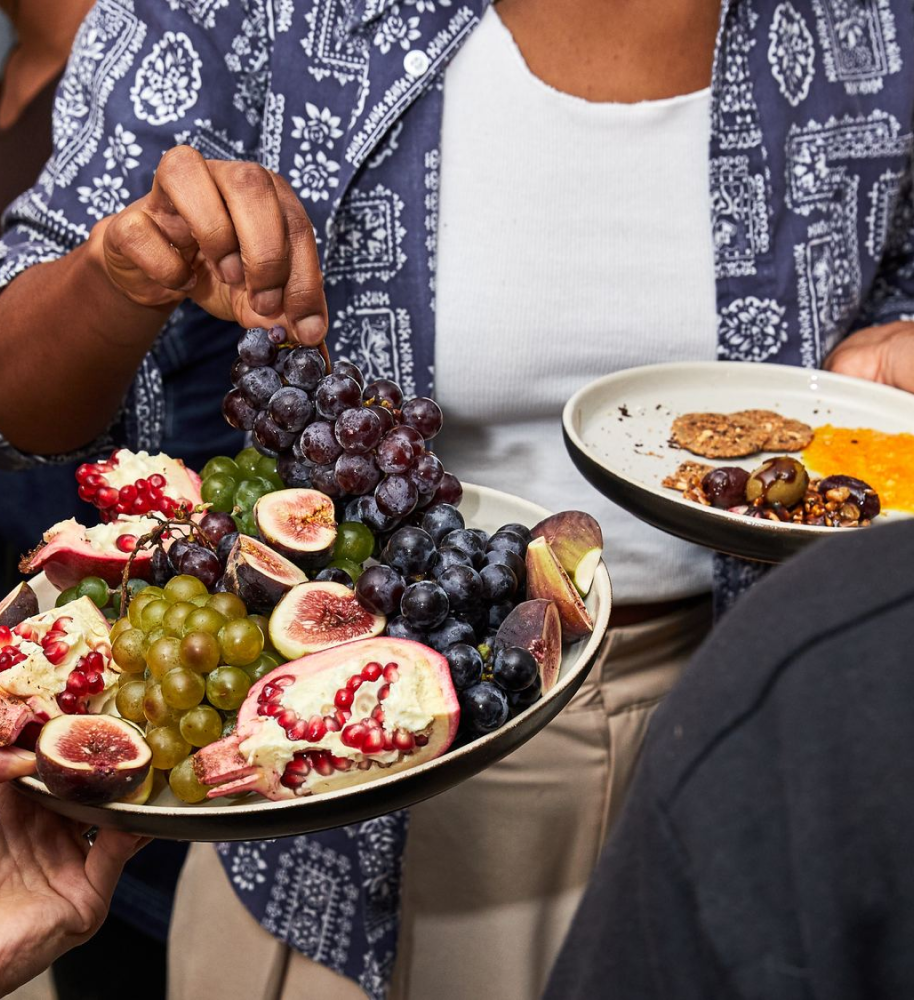In our series, Building Blocks, we go back to the basics, exploring and unpacking the mainstays of the home and kitchen. With Earth Day around the corner, we’re sharing our best tips to help you incorporate sustainable practices into your everyday cooking.

1. Shop locally, cook seasonally
Consider doing your weekly grocery run at the local farmers market where you can find fresh seasonal produce. Not only does this reduce your food miles and support local producers, but it's also a fun and flavorful way to try new fruits and vegetables that aren't always in your normal dinner rotation. Our pro tips: go early, carry small change, and bring your own produce bags to the market (to minimize single-use packaging).
2. Grow your own veggies at home
What's more sustainable than cooking with your own homegrown ingredients? Growing your own food can be an incredibly rewarding (not to mention extremely delicious) experience. If you're just starting out, leafy greens like kale, spinach and lettuces, and herbs like basil, cilantro and parsley are perfect for new growers especially in small spaces. For more gardening tips, check out our interview with farmer Niels from Lettuce Grow.

3. Find creative ways to cook with food scraps
Don’t let those veg tops and fruit peels go to waste! Try whipping up a fragrant pesto with those leftover carrot tops, beet greens, and celery leaves, or using citrus rinds for marmalade and to garnish your cocktails—the possibilities are (deliciously) endless. Here are a few more of our favorite ways to cook with whole plants and minimal waste in the kitchen:
- Make your own stock with vegetable trimmings or leftover bones
- Create infused vinegars with herb stems
- Bake stale bread into croutons
- Add chopped broccoli stems to your stir fries
- Brew orange and apple peels into sweet teas

4. Give back to the Earth by composting
Composting is another great way to reduce your food waste and environmental impact in the kitchen. The benefits are far-reaching, from enriching the soil and promoting biodiversity to conserving resources and advancing circular economies. Plus, it’s easier than you think to get started—keep a bin on your countertop for food scraps or store your compost right in the freezer until it's time to drop it off.
Need help locating a drop-off site? Find out where you can compost near you here.
5. Invest in quality kitchenware
There’s nothing worse than constantly having to replace your cookware and tools every few years. Break the cycle and opt for high-performing kitchenware that will actually last you a lifetime—buy once, use forever. Be sure to look for durability and versatility in these products as well as quality, Earth-friendly materials (think: linen, stainless steel, FSC-certified wood, upcycled materials, etc.)

